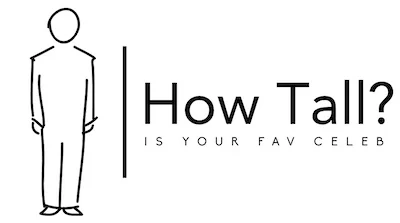How Bill Gates’ Height Has Impacted His Success
Bill Gates is one of the most successful entrepreneurs in history, and his success has been attributed to many factors. However, one factor that is often overlooked is his height. At 6 feet 1 inch tall, Gates stands out from the crowd and this has had a significant impact on his success.
Gates’ height gives him an advantage when it comes to public speaking and networking events. His stature makes him more visible in a room full of people, which can help him stand out from the crowd and draw attention to himself. This can be beneficial when he needs to make an impression or get people interested in what he has to say. Additionally, being taller than average can give Gates an air of authority that helps him command respect from those around him.
Gates’ height also gives him a psychological edge over others in business negotiations or other competitive situations. Studies have shown that taller individuals are perceived as more competent and trustworthy than their shorter counterparts, which could give Gates an advantage when it comes to making deals or convincing people of his ideas. Furthermore, being tall may also give Gates more confidence in himself and his abilities which could help motivate him during difficult times or spur him on towards greater success.
In conclusion, Bill Gates’ height has had a significant impact on his success as an entrepreneur by giving him advantages such as increased visibility at networking events and greater confidence during negotiations or other competitive situations. While there are many factors that contribute to someone’s success, it is clear that Bill Gate’s impressive stature plays its own role in helping shape who he is today
The Surprising Benefits of Being Tall: A Look at Bill Gates’ Height
The towering height of Bill Gates, the founder of Microsoft and one of the world’s wealthiest individuals, has been a source of fascination for many. But what are the benefits that come with being tall? This article will explore how Gates’ height has helped him to achieve success in his life and career.
One advantage that comes with being tall is increased physical presence. Studies have shown that taller people tend to be perceived as more authoritative and powerful than their shorter counterparts. This can be beneficial in a variety of situations, from job interviews to negotiations. For example, Gates’ impressive stature may have helped him to command attention during meetings with potential investors or business partners.
In addition, taller people often appear more confident than those who are shorter in stature. This can give them an edge when it comes to making decisions or taking risks – something which is essential for entrepreneurs like Gates who need to make bold moves in order to succeed. Furthermore, research suggests that taller individuals tend to be better at problem-solving due to their increased ability for abstract thinking – another trait which could have contributed towards Gates’ success as an innovator and leader within the tech industry.
Finally, there is evidence that suggests taller people are more likely than their shorter peers to receive higher salaries and promotions within their chosen field – something which could certainly apply in the case of Bill Gates given his immense wealth and influence today!
Overall then, it appears clear that there are numerous advantages associated with being tall – advantages which may well have played a role in helping Bill Gates become one of the most successful businessmen on earth today!
Exploring the Link Between Height and Leadership: Examining Bill Gates’ Case
The relationship between height and leadership has been a topic of debate for many years. While some studies have suggested that taller individuals are more likely to be seen as leaders, others have found no correlation between the two. To better understand this link, it is important to examine the case of Bill Gates, one of the most successful business leaders in history.
At 5’10” tall, Bill Gates is considered average height for an adult male in the United States. Despite his average stature, he has achieved remarkable success as a leader and entrepreneur. He co-founded Microsoft Corporation in 1975 and served as its CEO until 2000 when he stepped down from his role to focus on philanthropy work with his wife Melinda Gates through their foundation. During his tenure at Microsoft, he led the company to become one of the world’s largest software companies and helped revolutionize personal computing technology with products such as Windows operating system and Office Suite software applications.
Gates’ success demonstrates that height does not necessarily determine leadership ability or potential for success in business or other fields. His example shows that intelligence, hard work, dedication and ambition can be just as important factors when it comes to achieving success regardless of physical stature or appearance. In fact, research suggests that shorter people may even have an advantage over taller people when it comes to certain aspects of leadership such as decision making speed due to their smaller physical size allowing them greater agility than their taller counterparts (Klein & Sternberg).
In conclusion, while there may be some correlation between height and perceived leadership ability among certain populations or cultures; ultimately individual characteristics such as intelligence level, ambition level and dedication are far more important factors when it comes to determining who will become successful leaders within any given field or industry regardless of physical stature or appearance. The case study of Bill Gates serves as a prime example demonstrating this point clearly; proving that anyone can achieve great things if they possess these qualities regardless of their size or shape
Q&A
Q: How tall is Bill Gates?
A: Bill Gates is 5 feet, 10 inches tall.
Q: Does Bill Gates have any health issues related to his height?
A: No, there are no known health issues related to Bill Gates’ height.
Q: Has Bill Gates ever commented on his height?
A: Yes, in an interview with The Wall Street Journal in 2014, he said “I’m 5-10 and I’ve never wished I were taller.”

